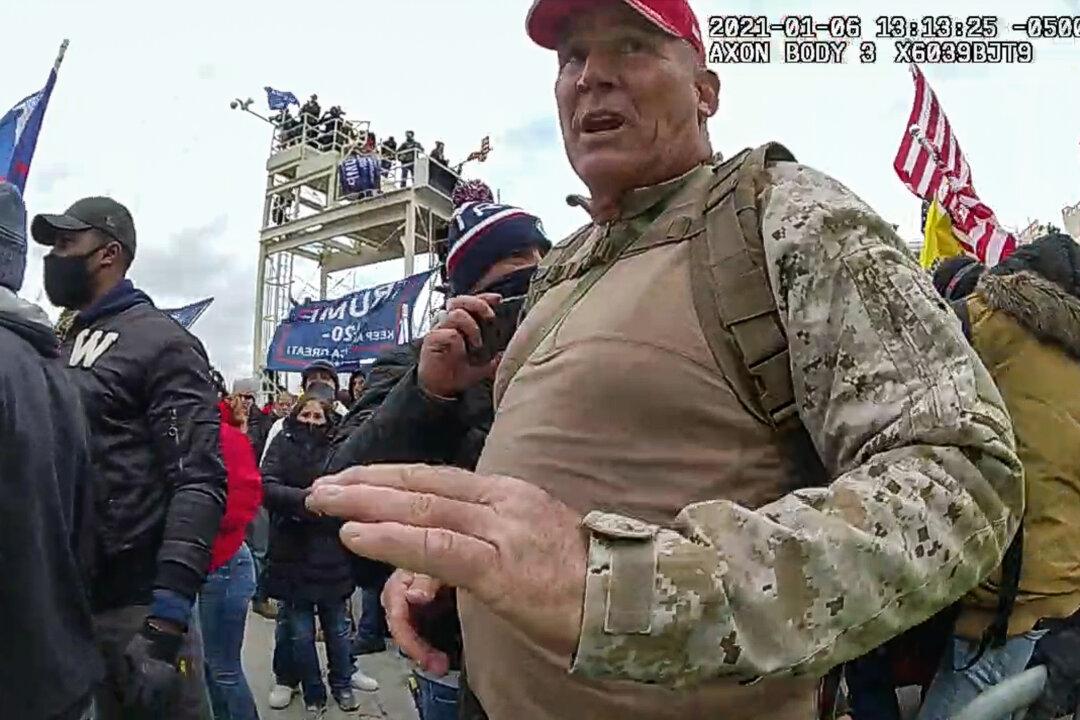Federal prosecutors have asked a judge to send James Ray Epps Sr. to jail for six months when he appears for sentencing Jan. 9 on one count of disorderly or disruptive conduct at the U.S. Capitol on Jan. 6, 2021.
The U.S. Department of Justice acknowledged in its 29-page sentencing memorandum that the Epps case stands alone among Jan. 6 prosecutions—not just for its lightning speed but also for the “compelling mitigating factors” that led to his pre-indictment plea deal in September 2023.





